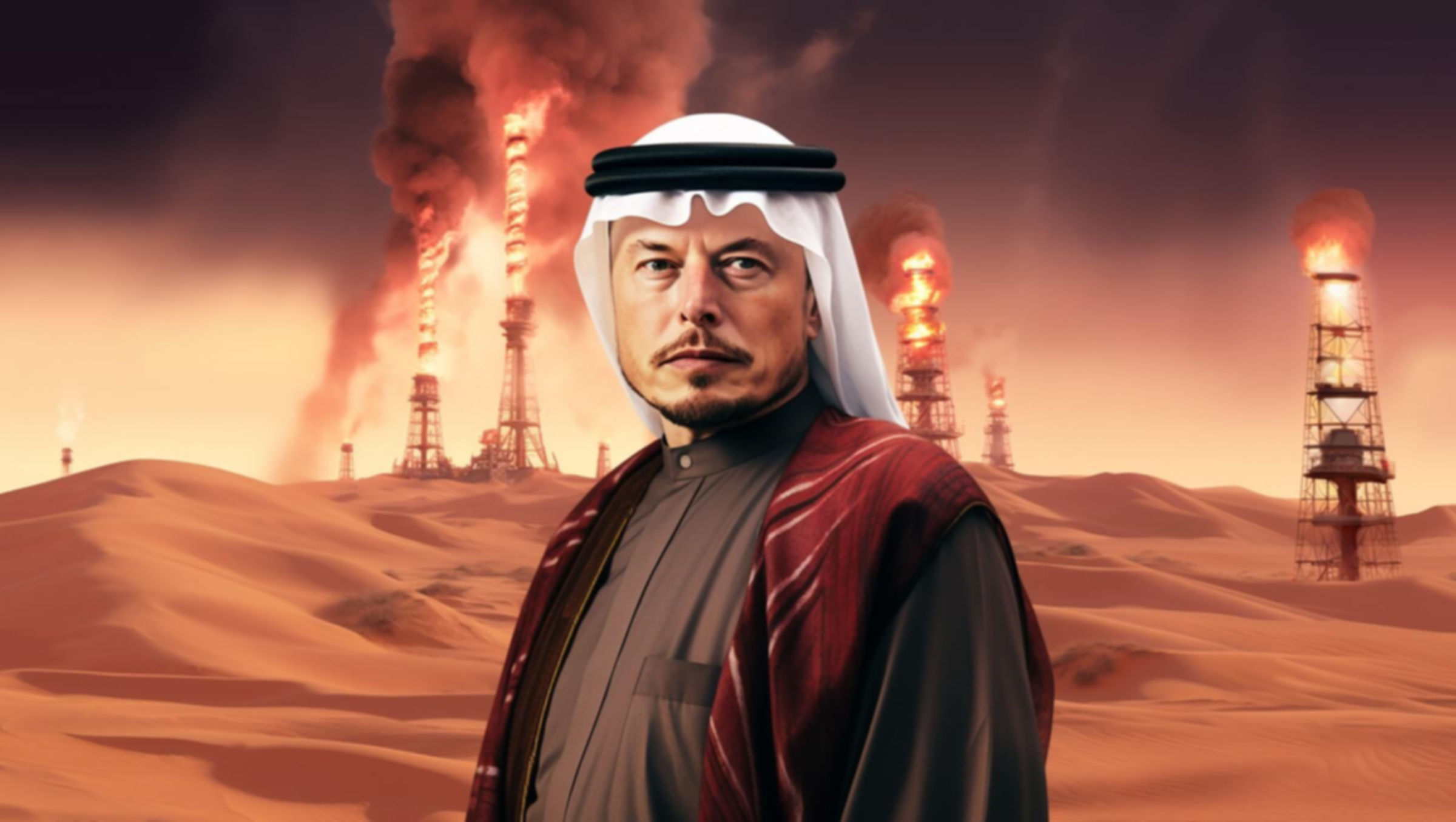Much has been written in 2023 about the collapse in Twitter's ad revenue, a fact admitted by new owner Elon Musk himself. Yet, the deeper and more interesting story lies not in dwindling advertising revenue or even in subscription revenue through the much-maligned Twitter Blue. The real reason Musk bought Twitter, a detail often overlooked, is it's a veritable 'oil field' of data.
In this article, we will look at why Musk, a recognized figure in the AI space, is less interested in Twitter as a social media and advertising platform and is far more interested in its value as a data source. From clamping down on bots and data scrapers to monetizing API access and incentivizing high-quality content creation by paying users, we'll analyze Musk's actions since his takeover. We'll see that the real reason Musk bought Twitter is not to control the discourse on social media but to control the valuable output of this discourse - data - the new oil of the AI age.
Twitter is not a social media company

What people are missing is that Elon Musk did not pay $44 billion to buy a social media platform. He paid $44 billion to buy a data source. While Twitter appears to be a social media company to its users, most people miss that to its owners; Twitter's value is as a data source. Let me explain.
Free API access revoked & data scrapers sued
In February 2023, Twitter announced that free access to its API, which allows external software to access Twitter's tweets and user data automatically, would be revoked. Instead, those who wanted API access to Twitter's data would need to pay.
In July, Twitter began limiting the number of tweets users could view daily in response to extremely aggressive data scrapers - programs extracting large volumes of tweets and user data violating the terms of service. The company also sued 4 Texas-based individuals who they claimed illegally scraped data from Twitter, a sign of how seriously they were taking the data scraping issue.
Charging for API access and clamping down on data scraping shows the value Musk assigns to Twitter's data. Now that he is controlling the Twitter data supply, the question we need to ask is - will there be a demand for Twitter's data? We need to look to a different part of the Musk empire for the answer.
AI models need data. LOTS of data
Interest in Artificial Intelligence tools has exploded since ChaptGPT launched in late 2022. Billions of dollars have been invested in AI companies and start-ups, particularly in the Generative AI space. These companies build and deploy complex AI models and algorithms that are essentially data-hungry engines. These AI models require vast amounts of data to create accurate, insightful, and valuable outputs or predictions. Without data to input, the sophisticated frameworks underlying them would be worthless.
Elon Musk understands the AI game
Musk was a co-founder of OpenAI, the research lab behind ChatGPT. AI is a crucial part of Tesla's, the electric car company Musk runs, efforts to develop fully autonomous, self-driving vehicles. Musk also co-founded Neuralink, a neurotechnology company that uses AI to create brain-computer interfaces. Musk's involvement in AI is deep, and it has spanned several years. He is no AI bandwagoner.
Is Twitter data valuable?
Twitter is the source if you want real-time data on sentiment, trends and discussions. Users express their opinions and engage in debates, an online town square, making it a rich source of timely insights you cannot get from any other platforms. Marketers can use Twitter data to gauge sentiment about products or brands. Politicians and organizations can assess public opinion on policies and candidates. Investment banks can analyze tweet patterns to predict market trends. In the new AI-driven world, clean and high-quality data from Twitter is a valuable commodity.
Bots and spam lead to dirty Twitter data
Musk's criticisms of bots and spam before and during his Twitter takeover can be linked to his understanding of AI models' need for "clean" Twitter data. 'Clean data' is accurate, free of irrelevant noise, like bot-generated tweets, and ready for processing by AI models. AI engineers and data scientists often talk about "data cleansing". This involves collecting raw data from sources, like Twitter, and "cleaning it" to remove noise and inaccuracies before it is fed into AI models. Musk's focus on bots and spam makes even more sense in the context of his buying Twitter as a data source rather than as a social media platform.
Musk has been encouraging people to add to the conversation
In July, Musk announced that Twitter would begin paying verified content creators for the ads displayed in their replies. Soon afterwards, screenshots started appearing from excited Twitter content creators confirming the first payouts they would receive from Twitter.
For several reasons, starting a monetary incentive to create content or data makes sense. It encourages users to create more content on Twitter and potentially move their content publishing from other platforms, YouTube & Spotify, for example, to Twitter. It encourages users to create high-quality content that others engage with, as payments are based on ad views in replies.
Musk wants users to discuss and debate with each other in replies, as these are quality insights for the Twitter dataset. High-quality content = high-quality data. More interesting content will drive new users to the platform, users who, in turn, can create or engage with content, adding to the conversation on Twitter.
Musk has killed off the Twitter brand
Musk did not buy Twitter because it was "Twitter". When he dropped the Twitter name and logo in July, branding and advertising agencies went into overdrive about the foolishness of the move and the billions in brand value he wiped out. But this is because they are still thinking of Twitter/X as a social media platform for advertisers to advertise on. Musk is not.
Companies stopped advertising. But are they paying Twitter for data?
Sure, advertisers left, and Musk no longer receives their advertising revenue. But as mentioned earlier, Twitter data is extremely valuable to marketers. The question is, are any of the advertisers who left Twitter quietly paying Twitter for data?
Marketers are thinking about Twitter revenue from the visible ads they see on the platform. They need to shift their perspective and think of income from the data side. If they did, they would see that companies can pay for and use Twitter data discreetly, including via 3rd party apps, without outsiders ever knowing. Firms who stopped paying for "advertising" on Twitter may still be paying Twitter for a far less obvious product - their data.
Musk is not playing the conventional social media or advertising game
Charging for API access, killing off data scraping, combating bots and spam, and offering monetary incentives to encourage the creation of more content. He even went as far as killing off the Twitter brand. These moves make it clear that Musk did not buy Twitter/X to generate revenue from advertising or subscriptions. His game is different. In a world where data flows like oil, Elon Musk didn't just buy an oil field; he crowed himself a Data Sheikh.



